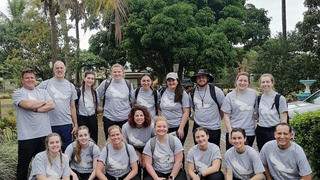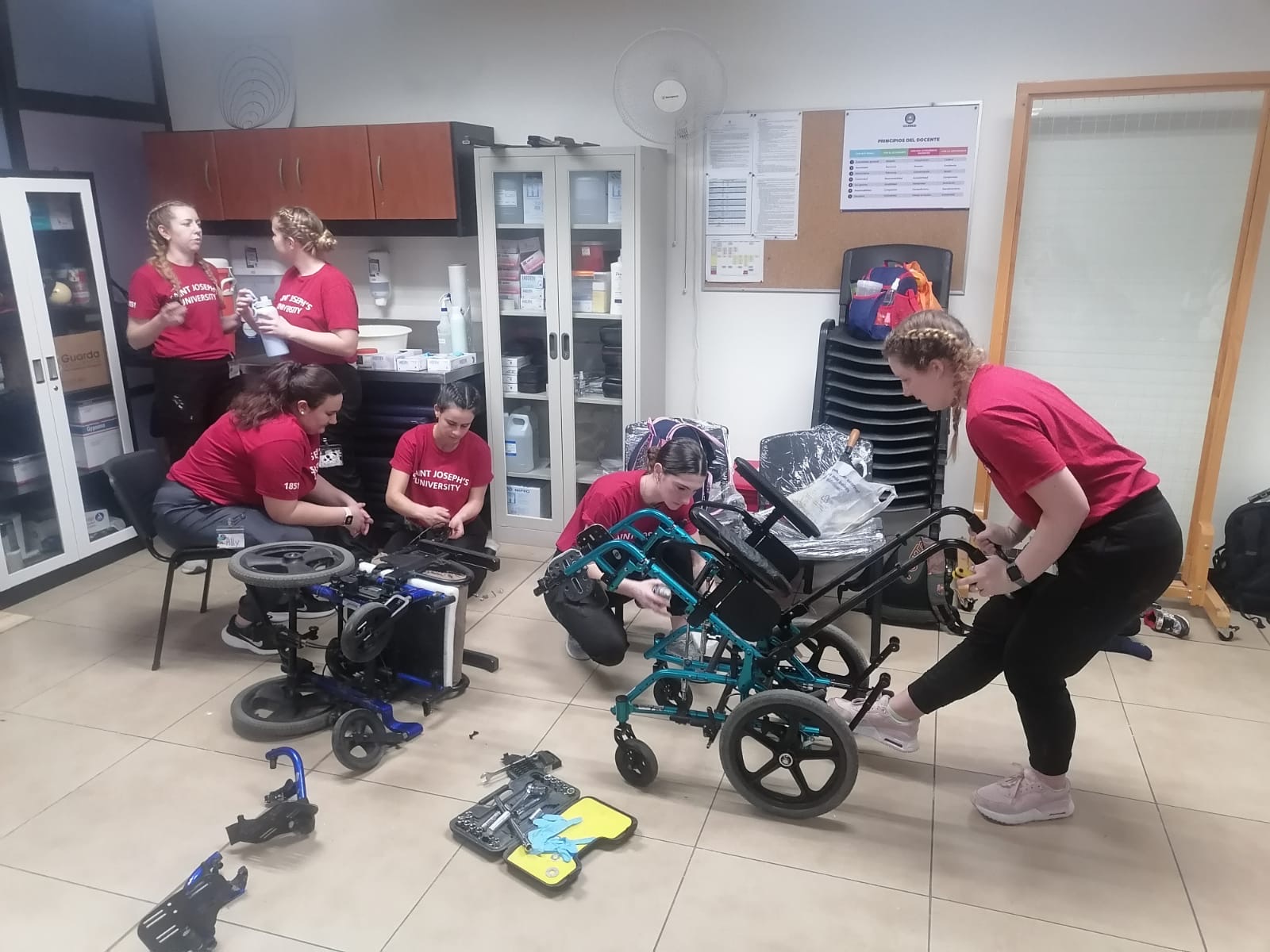Occupational and Physical Therapy Students Get Hands-On Experience in Costa Rica
OT and PT students walked away from their Costa Rica service-learning trip with hands-on experience and a lifetime of memories.

Kylie Tomlinson '23 (DrOT) walked into a patient's home built with mud, sticks, bricks and a collection of items found on the street.
"She offered us food and drinks and introduced us to her four middle-aged sons, all with a psychiatric diagnosis," says Tomlinson. "Her generosity toward us, though we were only there for 15 minutes, was profound. It was evident that she had very little, yet was selfless enough to offer us what she did have. It was a moment I will never forget, and became my favorite part of the trip."
While seven occupational and six physical therapy students enjoyed tropical weather and palm trees over spring break, relaxing was not on their agenda. On March 9, the students boarded a plane to help children and adults during their service-learning trip to Costa Rica.
Wendy Walsh, PhD, OTR/L, FAOTA, professor and chair of the Department of Occupational Therapy, jokingly calls the trip "spring work" instead of "spring break."
It is the longest, shortest week ever.
Wendy Walsh, PhD, OTR/L, FAOTA
Professor, Chair of the Department of Occupational TherapyGregory Thielman, PT, MSPT, ATC, EdD, professor of physical therapy, started this trip six years ago. Thielman says many PT programs offer service-learning trips, but he could not find any OT programs that offer them. So, he was excited to present the opportunity to a broader range of students.
"[The students] have all treated patients and they are all ready to treat patients,” says Thielman. “So, they really hit the ground running."
Along with treating patients, participants in the program help establish health services for immigrant populations within Costa Rica. The country has a socialized medical system. However, only citizens and permanent residents have 100% healthcare coverage.
"There are a lot of Nicaraguan immigrants in the communities we go into," says Thielman. "So, obviously, they wouldn't have any country services."
The practice of OT and PT in Costa Rica also varies compared to the United States. Walsh says there is only one OT school across the entire country.
"We are much more regimented and documentation focused, [Costa Ricans] are not so much," says Walsh. "There is a lot of overlap in disciplines with things like speech therapy or recreation therapy, but they don't necessarily have those services available to them. Specifically, the children's school for special needs had a presence of a PT and an OT but, due to COVID, sometimes there are no OT services at that school."

Walsh and Thielman say this kind of experience is an excellent complement to PT and OT curricula.
"Students are looking for international exposure and international travel," says Walsh. "This is one way to meet that … It is important for the University to support students to do this because it complements the experiences [in the United States] that we offer students in field work, field exposure and clinical education."
Allyson Short ’24 (DPT) explains how the trip not only provided her with practical experience, but she also learned more about herself.
“I felt myself blossoming each day when providing care to others,” says Short. “It was amazing to learn about each person I met and grow a connection with them. Even though the language barrier was tough at times, we still were able to build rapport with one another.”
Tomlinson agrees with this sentiment. She explains how the trip introduced her to a new culture and offered a different perspective.
"The people were so grateful and appreciative of all of the work we did, regardless of how simple some of the treatment may have seemed to us," says Tomlinson. "The treatment we were able to practice in a clinical setting included wheelchair adjustments and fittings, a free clinic for displaced families, psychological group treatments and assessment and evaluation of children with disabilities in a school."
While she enjoyed providing services to people in need, gratitude is what she will never forget.
"The overwhelming amount of 'thank you's’ and 'gracias's’ we received while we were there will last me a lifetime," says Tomlinson.
